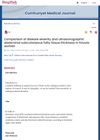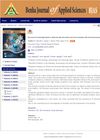The Evaluation of Clinical Signs and Hormonal Changes in Women Who Complained of Excessive Body Hair Growth
January 2005
in “
PubMed
”
TLDR Women with excessive body hair often have higher male hormones and related health issues.
The study evaluated 122 Lithuanian women aged 18-35 who complained of excessive body hair growth. Hirsutism was identified in 60.66% of participants using the Ferriman-Gallwey method. Women with hirsutism had higher testosterone and dehydroepiandrosterone sulfate levels, a higher free androgen index, and lower sex hormone-binding globulin levels. They also reported more infertility and skin greasiness, and had higher body mass index, blood pressure, and waist/hip ratios. Women tended to overestimate their hair growth compared to physician assessments. No significant hormonal differences were found based on subjective evaluations of hair growth.



